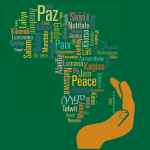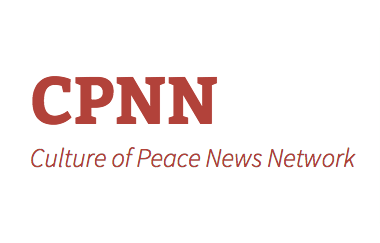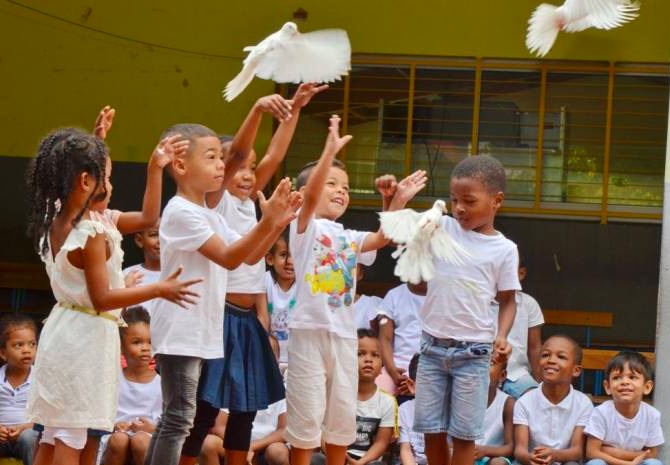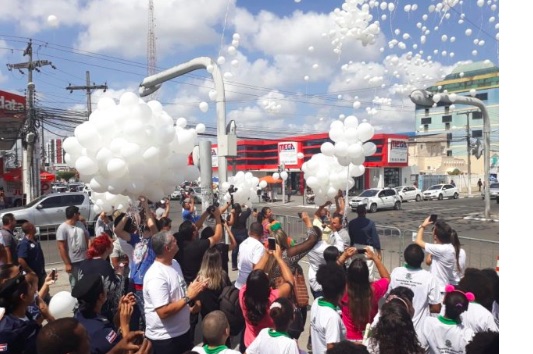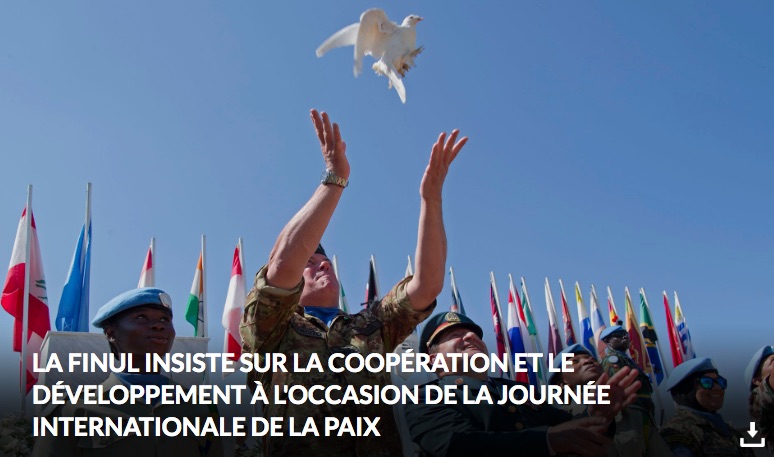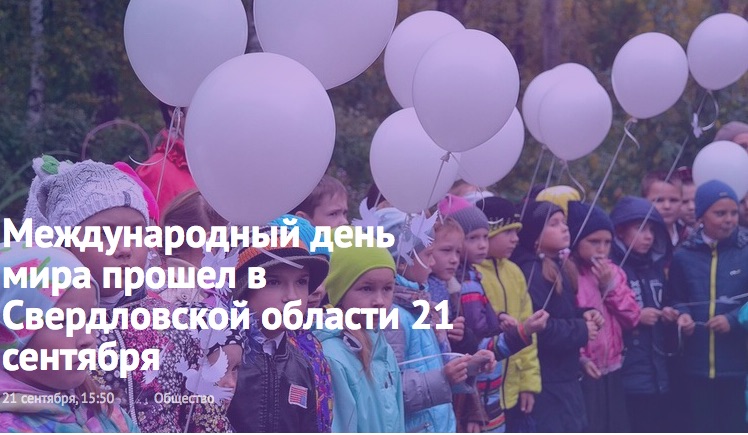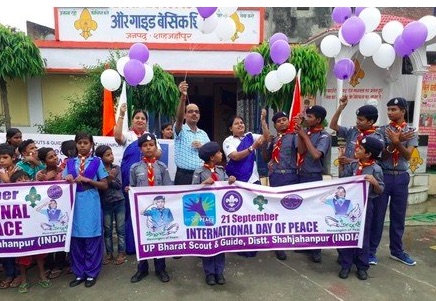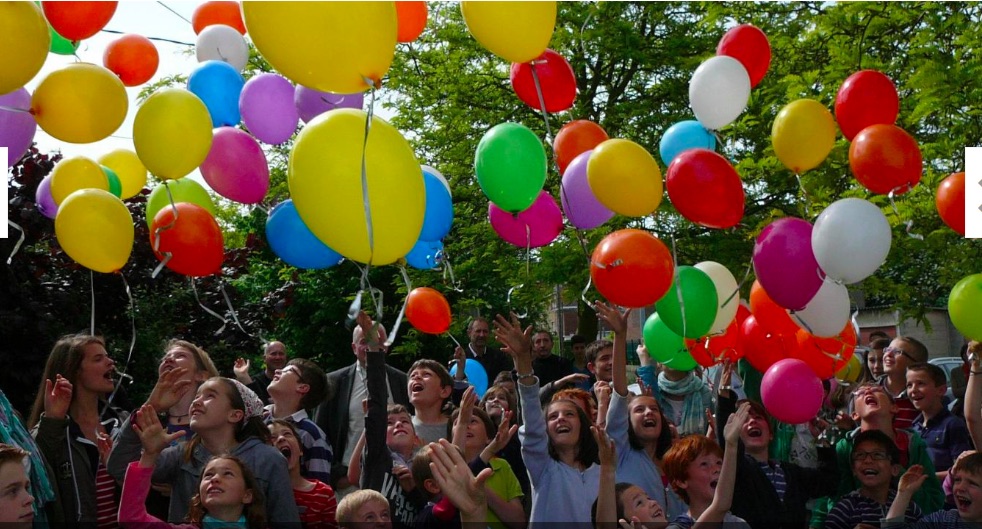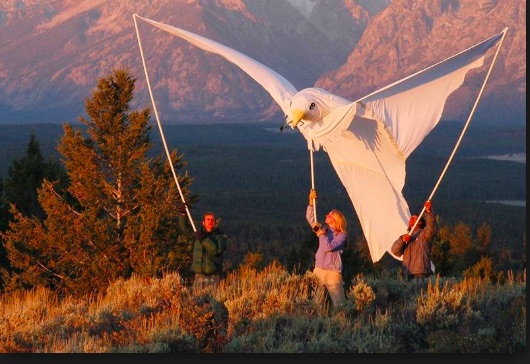INTERNATIONAL DAY OF PEACE
Using the same methodology this year as last, we see even more events than ever around the world for the International Day of Peace. The number of events we could find was almost doubled in North America, Europe, Asia, and Latin America, from 126 to 233, from 96 to 177, from 67 to 158, and from 58 to 95 respectively.
For the most part, celebrations were organized by cities and towns, schools and civil society. However, a few heads of state issued proclamations. Prime Minister Trudeau of Canada stated, “As we mark the International Day of Peace, and celebrate the seventieth anniversary of the Universal Declaration of Human Rights, I encourage Canadians to reflect on how we can all stand up for human rights, and build a better country and more peaceful world.” Chinese Vice President, Wang Qishan proclaimed that “the International Day of Peace represents good hope for world peace for all the people in the world. The Chinese people, always a lover of peace, expect to pursue, maintain and enjoy peace with the peoples of other countries.” President Maduro of Venezuela said “The heroic people of Venezuela have managed to overcome their difficulties peacefully. On this International Day, we confirm that it is the only way to achieve true freedom. With Peace everything is possible.” And at the United Nations, Secretary-General António Guterres said “Peace is the unifying concept that brings us together. Peace is at risk. Peace is violated in so many places. But we will not give up.”
Similar to last year, the greatest number of events took place in schools, involving the children of the world in the hopes for peace. An outstanding example was that of the Montessori schools around the world, where the tradition of singing “Sing Peace Around the World” is used annually to mark the International Day of Peace. “Peace is a big part of the Montessori curriculum,” saidKennebec [Maine, USA] Montessori School Principal Rebecca Green. “It’s the foundation for helping children figure out who they are in the world and how to treat others with respect.” Maria Montessori, the founder of the Montessori educational philosophy, was a three-time nominee for the Noble Peace Prize who encouraged teachers to cultivate peace and courtesy in their classrooms.
In school after school, the Day was an occasion to appreciate diversity. In Boca Raton (Florida), students in the Coral Sunset Elementary School dressed in their native colors and countries: “We have over 64 countries represented in the Palm Beach School system.” At the University of Bradford (UK) “our students cover over 50 nationalities. The chance to meet people of different backgrounds and experience makes our school a very rich learning environment.” In Vitoria, Brazil, students at the Centro Educacional Leonardo da Vinci produced a mural for respect for differences among peoples, through generosity and a careful look at the other. Each group worked with a continent, painting butterflies with the colors of the flags of each country, but these butterflies are not restricted to their borders, joining on the same planet, showing that although we have different colors and flags, we are similar and have a same heart.
Below are photos of children around the world releasing balloons or doves into the sky as a symbol of their wish for peace everywhere.
In hundreds of events, music served as a universal language. A typical example was in Piratininga, Niteroi, Brazil, where students of the Colégio de Aplicação Dom Hélder Câmara, gathered in the central plaza to sing “La paz” by Gilberto Gil, the most popular singer in their country. We have already mentioned above the use of music by the Montessori schools. The initiative One Day, One Choir, connected world class ensembles with school, community, faith, workplace and local choirs in more than 70 countries to sing for peace and unity.
Everywhere the day was an occasion to bring people together across the divides of religion. For example, in Brussels, Belgium, as part of the International Day of Peace, the City hosted a conference organized by Almouwatin (Citizen, in Arabic) to address the themes of exchange and sharing in collaboration and with the support of various Muslim, Jewish, Buddhist, lay, Freemason, Christian associations. In Sao Paulo, Brazil, representatives of Catholicism, Spiritism, Buddhism, Umbanda, Protestantism, Hinduism, Candomblé and Islam participated in an interreligious act “Unity for Peace.” In Sydney, Australia, this year for the first time, the Armenian Apostolic Church, the Coptic Orthodox, and the Sufis joined in the annual Interfaith Prayer Service. And in Raipur, India, students of the Rungta International School visited the four major religious places of their city. the Ram Mandir , the Church , the Masjid and the Gurudwara where the religious leaders of all these places spoke about their respective religions . They emphasized the need to enable the next generation to understand and assimilate the essence and spirit of peace of all religions and respect them.
In Africa, where democratic transition is a difficult challenge, a common theme on the International Day of Peace was the need for peaceful elections. This was the theme in Cameroon, Democratic Republic of Congo, Gabon, Ghana, Madagascar and Zimbabwe.
This year there were many peace celebrations in countries emerging from armed conflict From Colombia, we publish the events in Tibu, Bogota, Santa Marta (Magdalena), La Paz (Cesar), Dabeiba (Antioquia), Bosa and Medellin. Those of Dabeiba and La Paz involved the former FARC combatants who were demobilized in the UN supervised camps near these cities. “This is a historic moment, some 15 years ago it was impossible to think of such a moment, and today we all come together for peace,” said Isaias Trujillo, who served 47 years in the FARC. And from Syria, we publish events from Aleppo, Homs, Sahnaya, and Qamishu, as well as a 12-hour marathon, in which about 15,000 people from different age groups took part. The marathon began at 8 am in Aleppo, Homs, Hama, Lattakia, Tartous and Sweida, where the participants ran simultaneously for a distance of 3 kilometers, before a number of them went to participate in another evening marathon in Damascus, concluded by a ceremony held by the Umayyad Square in the Syrian capital which can be seen in a video by CNN.
On the other hand, there were poignant comments from the events in the Ukraine, a country that continues to be divided by military conflict. In the capital of Kiev, there were competing celebrations of the International Day of Peace by those supporting the two sides and we publish descriptions of events from six other cities in the Western, official government zone and four cities from the Eastern, breakway zone. In Kurakhiv, the theme was “I want to live without war” and in Marazlievskoy, it was “We want to live in peace.” In Kiev, the chairman of the All-Ukrainian Union of Women Workers said “We, Ukrainian mothers, do not want our children to die. Let the war end!”
We give the concluding word to Kyrgyzstan where the Day of Peace was a moment to appreciate the absence of war: “For some of us, peace is an everyday reality. Our streets are calm, our children go to school. Where the foundations of society are strong, the priceless gift of peace can not be particularly noticed by anyone.”
| GLOBAL
|
AFRICA
Africa: International Day of Peace |
LATIN AMERICA AND CARIBBEAN
Latin America: International Day of Peace |
ARAB STATES AND MIDDLE EAST
Arab and Middle East: International Day of Peace |
| EX-SOVIET COUNTRIES
Ex-Soviet Countries: International Day of Peace |
ASIA AND PACIFIC
Asia and Pacific: International Day of Peace |
EUROPE
Europe: International Day of Peace |
UNITED STATES AND CANADA
United States and Canada: International Day of Peace |
